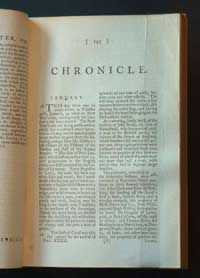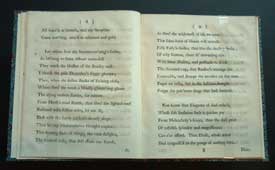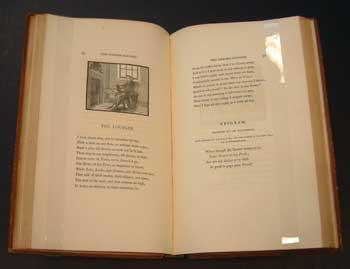
"£100 & a butt of sack yearly"
| Eusden & Cibber |
| Whitehead |
| Warton |
| Pye |
| Southey |
| Wordsworth |
| Tennyson |
| Austin & Bridges |
| Masefield |
| Lewis & Betjeman |
| Hughes & Motion |
| Refusals & Rejects |
Thomas Warton |
|
|
View large (137 Kb) |
According to Mason, Whitehead's death was 'sudden and without a groan.' Without delay, on 26 April 1785, Thomas Warton (1728-90) was named as poet laureate. He was 57, an Oxford Don, fond of wine (he wrote A Panegyre on Oxford Ale), conversation, martial music, and giving the occasional lecture. He also had an established poetic record. When thinking about penning the New Year Ode for 1788, George III went mad. Warton took the sensible option: silence, and waited for the monarch to recover, which he did. The non-appearance of the Ode, with Edward Gibbon's comment on the laureateship's artificial approach to poetry, was noted in the Annual Register of 1790. ___________________________________________________________ |
|
View large (173 Kb) |
Warton's main achievements were academic: observations on Spenser's Faerie Queene (1754), a Greek anthology (1766), an edition of Theocritus (1770), an edition of Milton's minor poems (1785), and biographies of Ralph Bathurst (1761) and Sir Thomas Pope (1772). There was also his monumental History of English Poetry, of which only three volumes appeared (1774 and 1781). On display is Warton's first independent work - The Pleasures of Melancholy (1747). ___________________________________________________________
|
|
View large (107 Kb) |
Samuel Johnson claimed that in speech Warton 'gobbled like a turkey', and in appearance was 'a little, thick, squat, red-faced man…in a very odd dress.' He was a man who obviously enjoyed himself. Ironically, when he died of a stroke on 21 May 1790, he had just penned the Birthday Ode which was about the blessings of good health. Not totally studious when young, he compiled the light-hearted Oxford Sausage (1764), his best attempt at satire. This edition contains illustrations by Thomas Bewick. ___________________________________________________________ |


